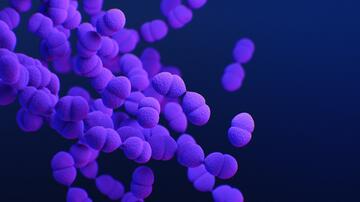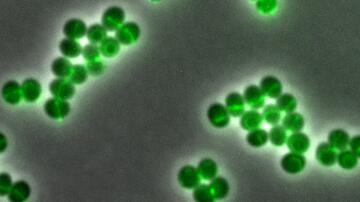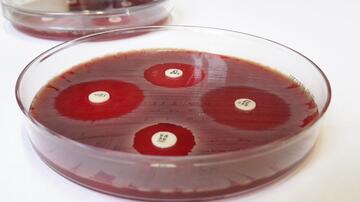Bacterial interference
The working group "Bacterial interference" exploits the human gut microbiome as a source for novel decolonization agents against enteropathogenic bacteria such as vancomycin-resistant enterococci. For this purpose, the research group uses advanced cultivation techniques that allow the cultivation of a large number of diverse, strictly anaerobic and often fastidious gut species to test them for their decolonizing properties. Furthermore, the research group developed an in vitro gut model as a preclinical test system to evaluate different decolonization strategies in a microbial community background. The aim of ‘Bacterial interference’ is to find truly selective and efficient methods to specifically remove pathogenic bacteria from the human gut before they can cause infection.
The human gut is densely populated with thousands of different microbial species that coexist in this environment in an antagonistic, mutualistic or even symbiotic manner. While co-evolution has predominantly resulted in a commensal and rather beneficial relationship between microbes and their host, also pathogenic bacteria are able to reside within the intestinal community. Those bacteria causing intestinal diseases are grouped together under the term "enteropathogens".
In most cases, the finely tuned network of microbe-microbe-host interactions ensures that these enteropathogens are kept in check. However, a dysbiotic event can cause the disruption of this balance, leading to severe and even life-threatening infections. To prevent dysbiosis—an imbalance within the intestinal flora, prior decolonization of an enteropathogen is a promising strategy. Current experimental decolonization strategies, however, are often based on broad-spectrum antibiotics, which act not only on the pathogenic target organism but also on important commensal microbes. In addition, these strategies bear the risk of selecting drug-resistant pathogens.
Therefore, the search for highly specific decolonization strategies is essential. As one of the most complex microbial ecosystems, the gut microbiome is a promising and also already evolutionarily adapted resource for novel and presumably specific agents with decolonizing properties. Accordingly, the DZIF research group ‘Bacterial interference’ is searching for novel narrow-spectrum agents against enteropathogens or metabolic competitors in the human gut microbiome.
Identified candidates are validated in the established in vitro gut model, leading to the identification of agents that can be developed into highly selective decolonization products. Application of such products not only provides the chance to reduce the incidence of infections but can also extend the useful life of important last-resort antibiotics.




